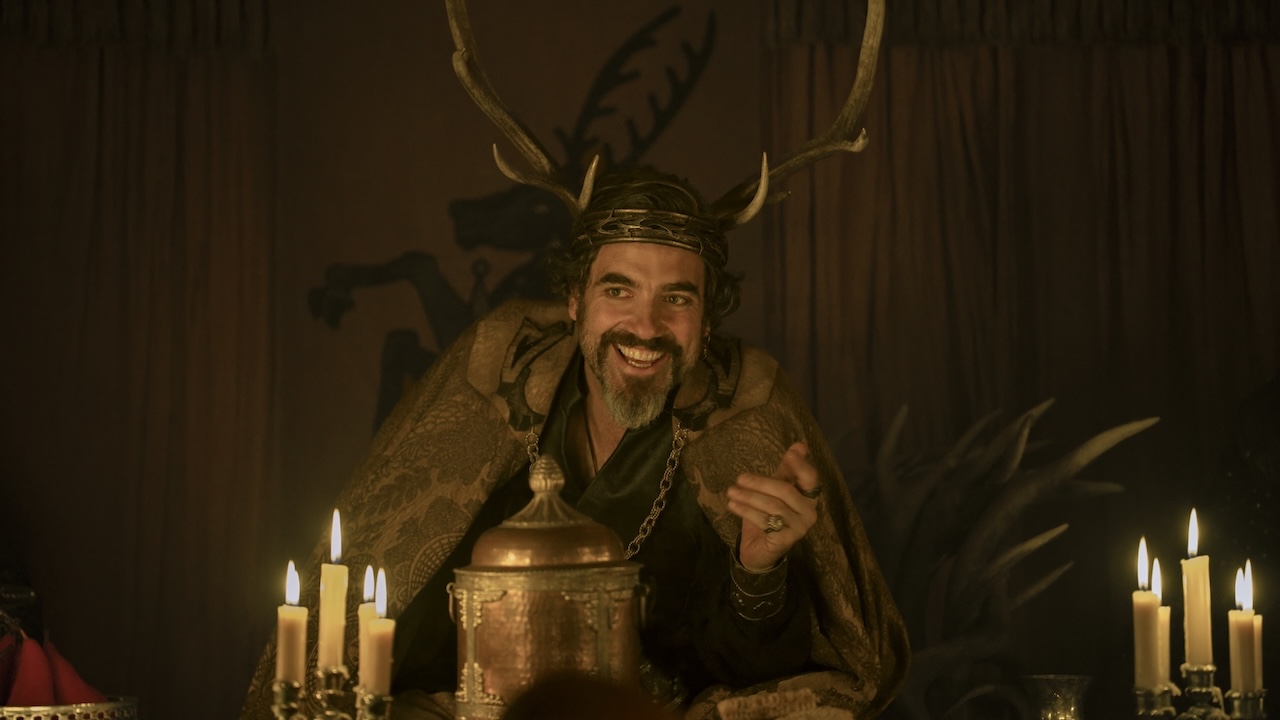In Honor Of Bruce Willis's Birthday, Here Are 5 Movies Not Named Die Hard You Should Watch To Celebrate His Amazing Career
There are plenty of options.
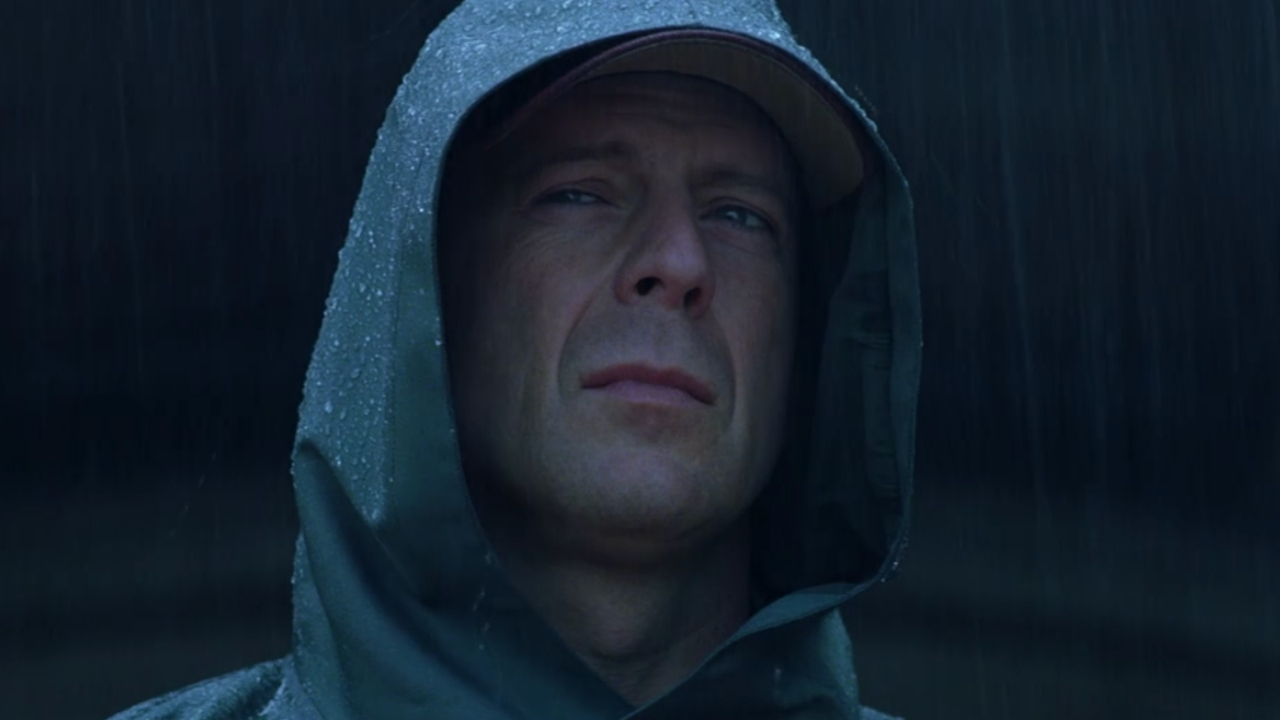
Happy birthday, Bruce Willis! The cinematic icon who protected L.A. from terrorists and the planet from asteroids is turning 69 today, prompting many to look back over his career and celebrate his various contributions. Like you, I grew up on WIllis’s vast and varied filmography, learning about him through his scene-stealing work as David Addison on Moonlighting, and then watching his meteoric rise to the top of the Hollywood food chain as an action star, a comedian, a contemplative dramatic actor, and one of our last great Movie Stars (capitalized for emphasis).
Later this year, I have a book reaching shelves titled Bruce Willis: Celebrating the Cinematic Legacy of an Unbreakable Hollywood Icon. (Pre-order it now, it arrives on June 11.) For the purpose of the book, I broke Willis’s career down into various genres in which he experimented, from comedy and sci-fi to action and pedigreed genres. I also screened and reviewed every single movie that Bruce Willis starred in… including all of the direct-to-video installments that characterize the back slice of his remarkable career and led into his retirement.
Let’s not focus on those. Let’s use Bruce Willis’s birthday as a reason to celebrate what I consider to be his 5 best movies outside of the Die Hard franchise. Because picking one of those to watch tonight seems too easy. Stretch outside the norm, and pop on one of these Willis Classics, to appreciate his versatility and immense talent.
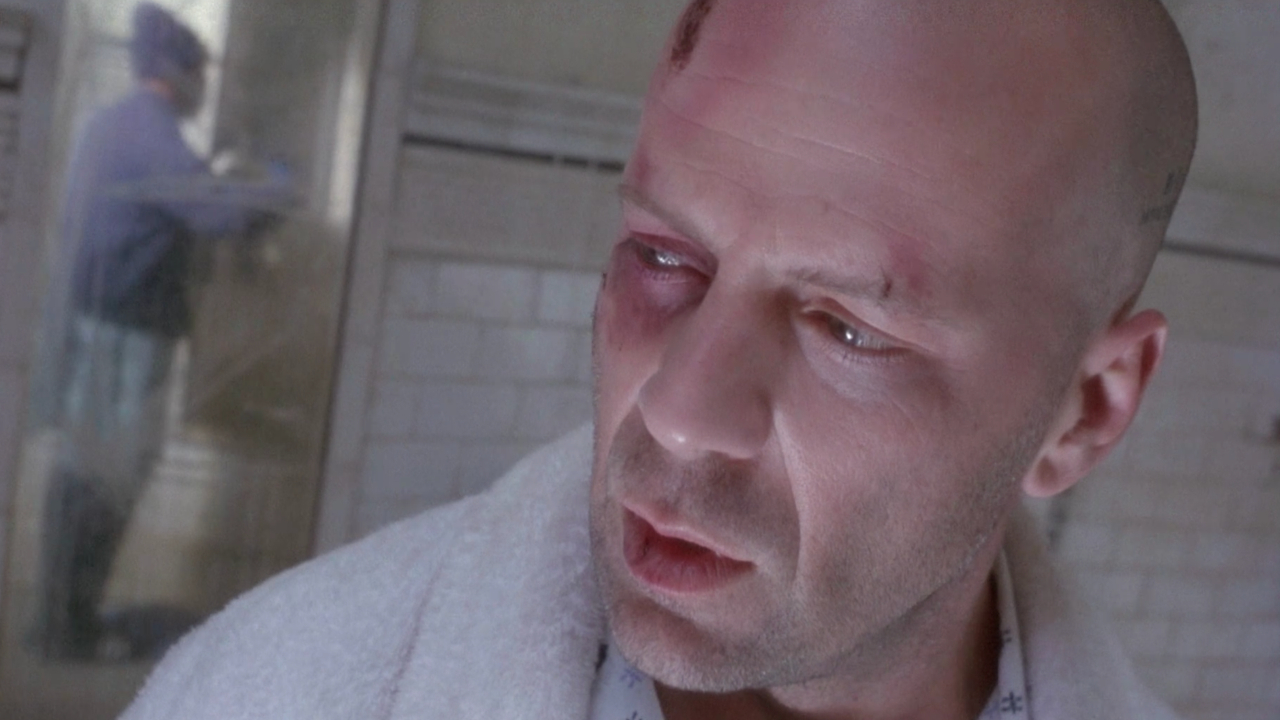
12 Monkeys
Controversial as this may sound, I think Willis’s best performance can be found in Terry GIlliam’s challenging, paranoid sci-fi thriller 12 Monkeys, where Bruce may (or may not) be playing a grunt sent back from the future to obtain information on a virus that will affect the world’s population. Shifting back and forth from a dystopian future to a present-day mental health facility encourages Willis to question the reality of everything around him, including his basic mission and the truth about the future. Brad Pitt got an Oscar for chewing the scenery around Willis, but it’s the action star’s harrowing, paralyzed confusion that anchors the insanity that’s laced through Gilliam’s masterpiece.
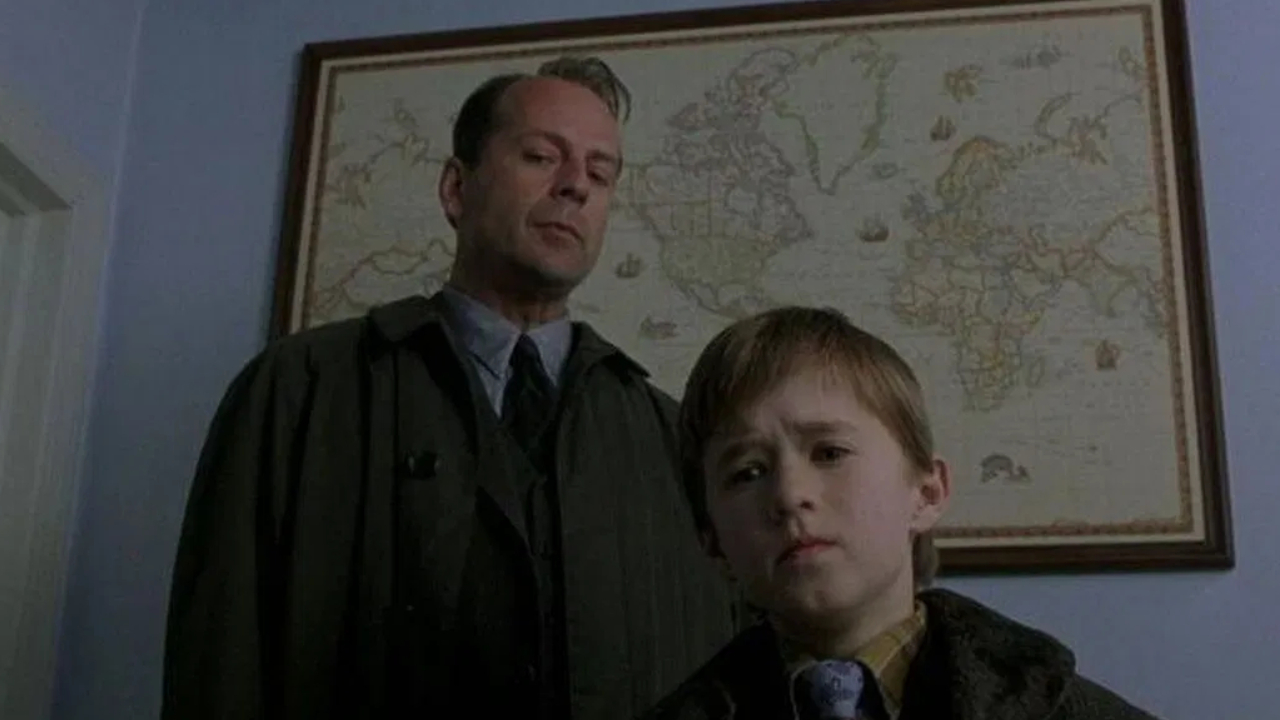
The Sixth Sense
Again, I ask, how the hell did Bruce Willis not receive an Oscar nomination for his mesmerizing work as child psychologist Malcolm Crowe? Literally everyone else involved with the movie earned a nomination, from writer-director M. Night Shyamalan to the incredible and deserving Toni Collette and Haly Joel Osment. The industry struggled with accepting Willis as a bona-fide actor, which is an absolute shame. Because the paternal warmth and concern that he brings to Crowe bolsters a jaw-dropping performance by Osment, not yet a teenager and still acting circles around most people in his orbit. Yes, yes… the twist ending. But everything about The Sixth Sense makes it an unforgettable movie experience.
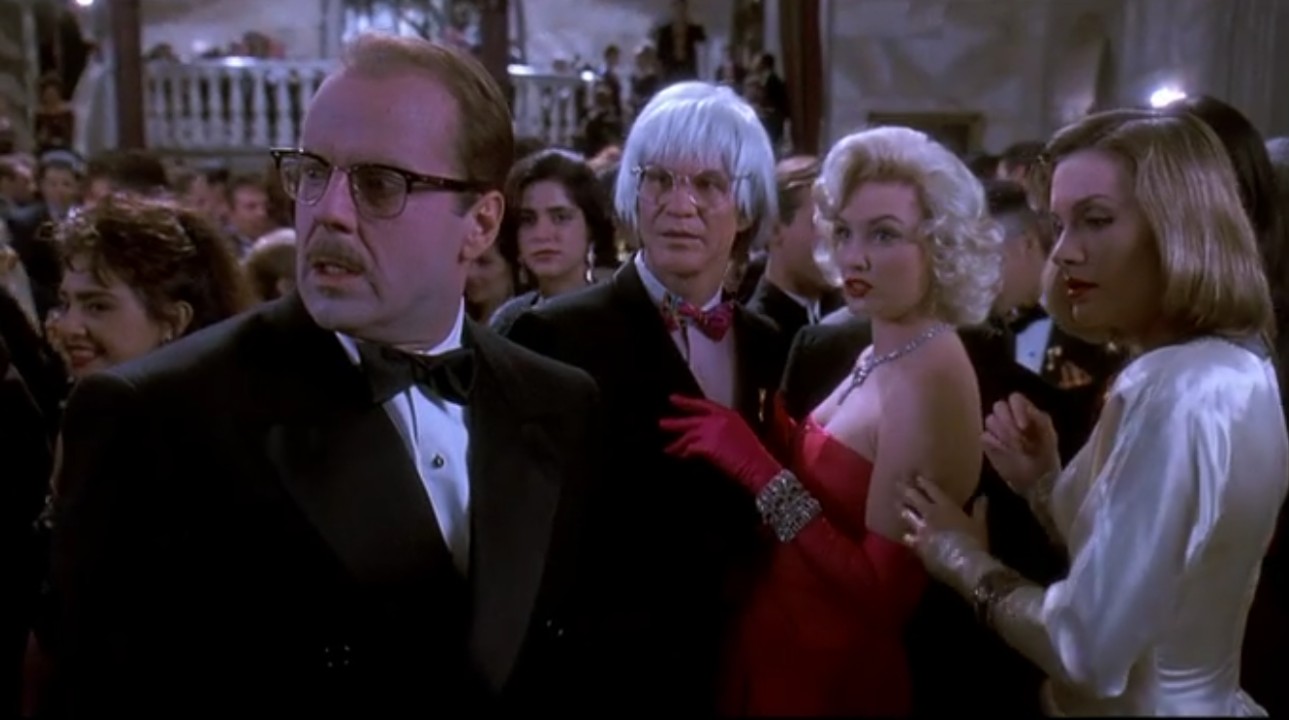
Death Becomes Her
Here’s what I love most about Bruce Willis: He didn’t need to be the star. In multiple movies, he’s the biggest star in the ensemble – be it The Whole Nine Yards or Armageddon – but is content to sit back and let others shine. Now, the “others” that shone through in Death Becomes Her are Meryl Streep and Goldie Hawn, so of course Willis would be willing to play third wheel to those masterful performers. But his willingness (almost a demand) to humiliate himself for the benefit of a joke elevates Bruce above his action-movie cohorts. Arnold and Sly don’t allow themselves to be the butt of a joke like this. But Willis wanted to work with Robert Zemeckis, and that nose for directorial talent often led to massive Willis wins.
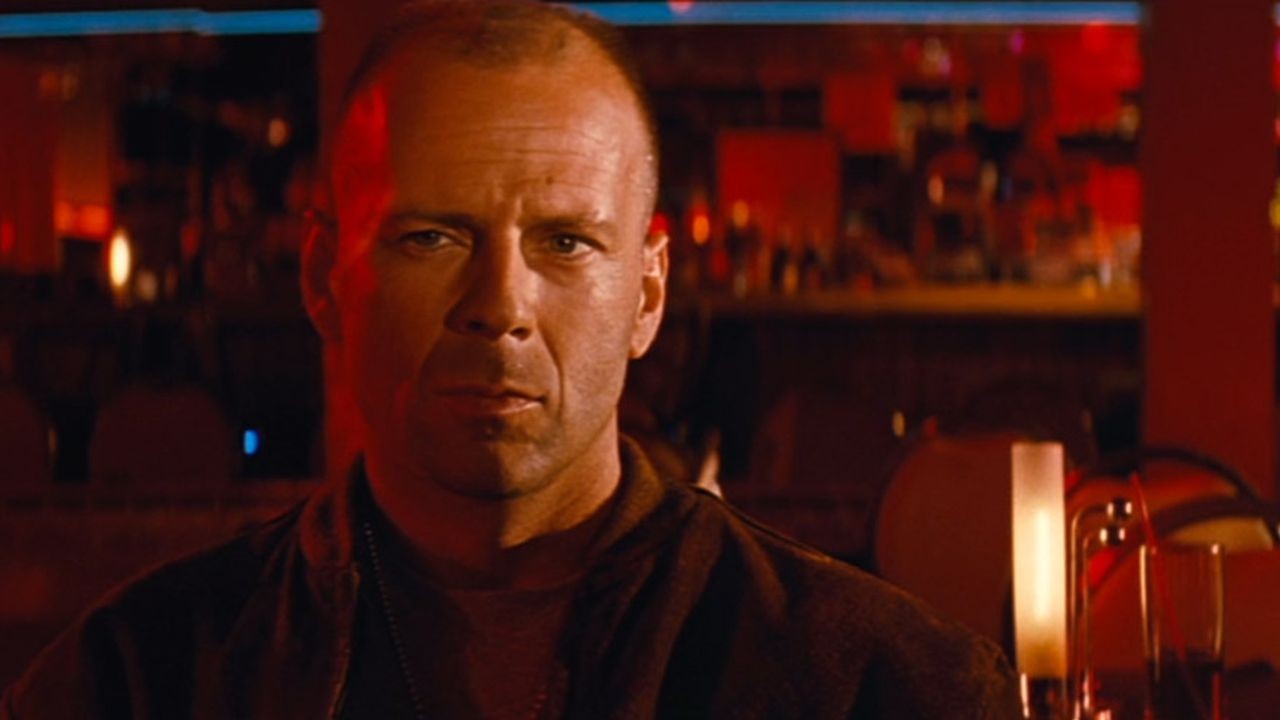
Pulp Fiction
Strange as this seems, Bruce Willis kind of needed Pulp Fiction. When it rolled around, the industry was high on Quentin Tarantino because of his gripping script for Reservoir Dogs. And while you might assume that signing Willis was a no-brainer, the actor was coming off of a relative cold streak that included Hudson Hawk, The Bonfire of the Vanities, Mortal Thoughts, and a few other roles that dinged his box-office status. Either way, it all worked out, and Willis’s turn as a boxer refusing to throw a fight remains one of his most passionate, riveting, and eye-popping. Please, Lord, figure out how to get Bruce into Tarantino’s final film.
Your Daily Blend of Entertainment News
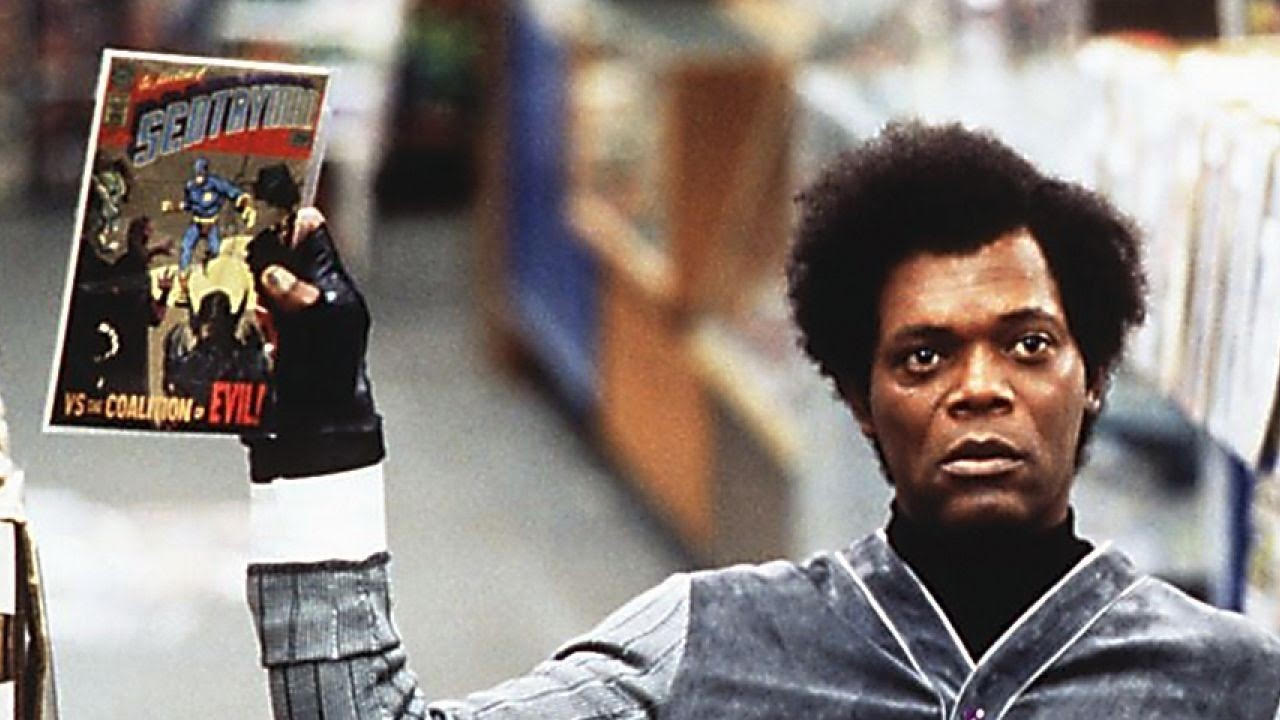
Unbreakable
M. Night Shyamalan got the best out of Bruce Willis. Some even argue that Unbreakable is the best of their collaborations (which also includes Glass, the end of their superhero trilogy). This is an entry in the “Stoic Willis” genre, where the boisterous action star reverted to his quiet, observational mode to sort of process the supernatural elements happening around him – from ghosts to super-powered beings. The reason I love Unbreakable as much as I do is because it flew in the face of the comic-book genre at a time when Marvel and DC were struggling with ways to make superhero stories compelling and worthwhile. It remains one of the best Bruce Willis movies ever made.

Sean O’Connell is a journalist and CinemaBlend’s Managing Editor. Having been with the site since 2011, Sean interviewed myriad directors, actors and producers, and created ReelBlend, which he proudly cohosts with Jake Hamilton and Kevin McCarthy. And he's the author of RELEASE THE SNYDER CUT, the Spider-Man history book WITH GREAT POWER, and an upcoming book about Bruce Willis.
